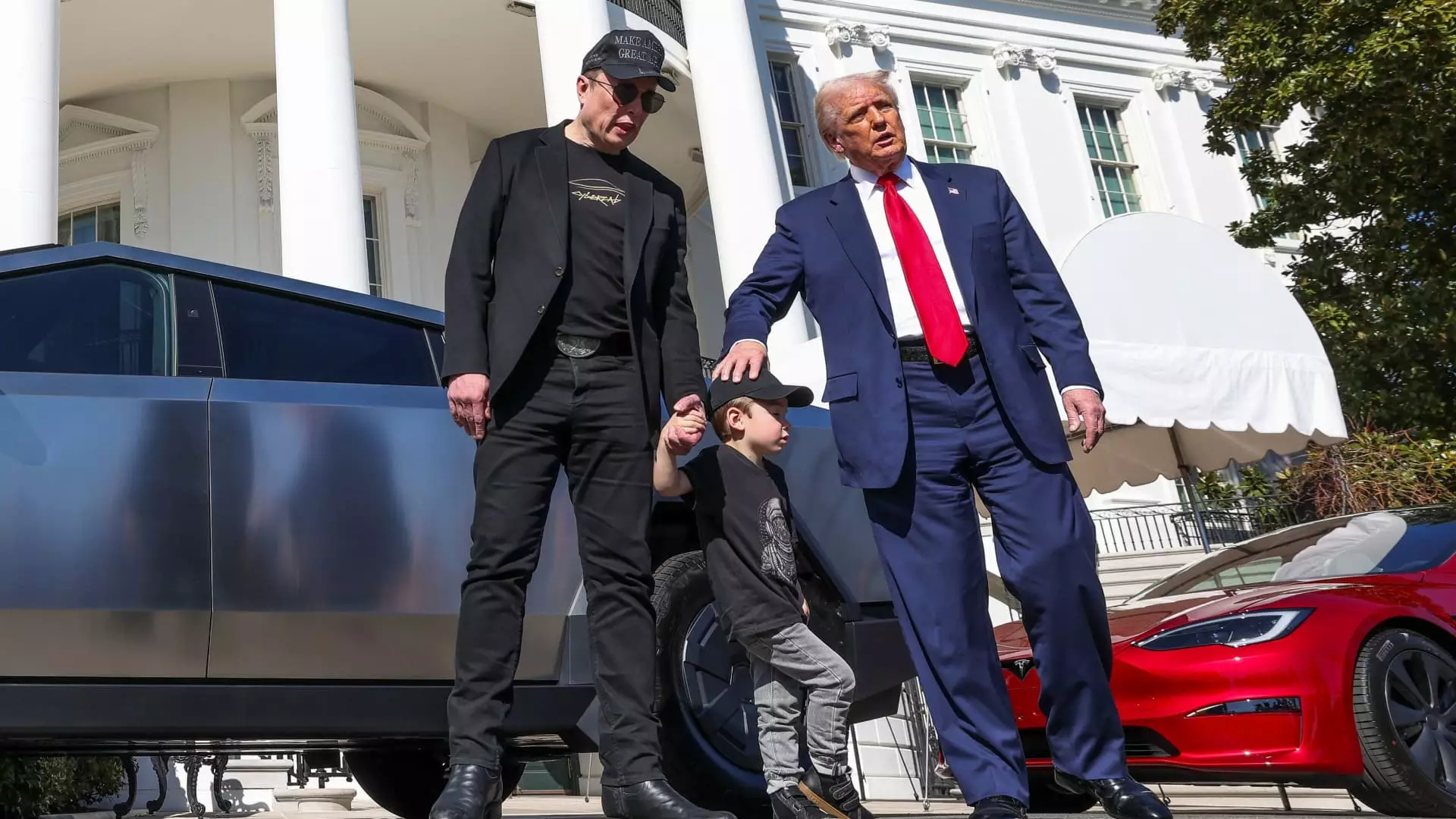In an age where global economies are increasingly interconnected, tariffs play a critical role in shaping the landscape of international trade. Elon Musk, the enigmatic CEO of Tesla, recently shed light on this complex issue during a quarterly earnings call, emphasizing his concerns about the volatile nature of tariffs and their wide-reaching impact. While he is known for his bold statements and revolutionary ideas, Musk’s perspective on tariffs reveals a nuanced understanding of economic dynamics, particularly how they affect his company and the broader automotive industry.
Musk distanced himself from conventional alignments, making it clear that while he respects the position of President Trump, he does not advocate for high or unpredictable tariffs. His statements suggest that he recognizes the detrimental effects tariffs can have on businesses and consumer choices. This stance is notably interesting, considering Musk’s close relationship with the administration, where loyalty can often overshadow critical economic discourse. By asserting that the resolution of tariff issues rests with the president, Musk deftly sidesteps the contentious nature of political affiliations while still pushing for thoughtful economic policies.
Tesla’s Unique Position amidst Turmoil
Despite the general anxiety surrounding tariffs, Musk highlighted Tesla’s advantageous position relative to other automakers. The company’s strategy of localizing supply chains primarily in North America, Europe, and China has allowed Tesla to mitigate some of the adverse effects typically associated with international trade tariffs. This strategy enables Tesla to be “the least-affected car company” concerning tariffs. However, the stark reality remains that no company is entirely immune.
Tesla’s latest financial report paints a troubling picture, with a notable 20% decrease in automotive revenue year-over-year, paired with an alarming 71% plunge in net income. Such figures inevitably lead to questions about the company’s resilience against fluctuating market conditions. It raises the question of whether Musk’s optimistic view regarding localization can sustain Tesla through these turbulent economic times. The company’s dependency on international supplies, especially for critical components like battery cells, underscores the need for diversification in sourcing materials.
Musk’s Candid Critique of Trade Advisors
Adding to the drama, Musk directed pointed criticism at Peter Navarro, a key trade advisor to President Trump. Calling him a “moron” and “dumber than a sack of bricks,” Musk illustrates a growing discord over tariff strategies within the administration. Surprisingly, this bitterness does not seem to hinder his determination to influence policy in a constructive manner. Musk’s role as an advisor is not merely ceremonial; he insists that he offers genuine advice, advocating for lower tariffs and predictable tariff structures that could benefit U.S. manufacturers—including his own.
However, as Musk navigates this delicate political landscape, one must wonder if he risks alienating himself from the very administration that could bolster Tesla’s growth initiatives. His advocacy for lower tariffs might resonate with a broader audience, but it poses a potential challenge in maintaining favorable relations with an administration known for its protectionist stance.
The Energy Sector’s Vulnerability
Tesla’s energy arm, particularly its electric vehicle battery production, reveals the deeper ramifications of tariff policies. The company is grappling with the implications of sourcing lithium iron phosphate (LFP) battery cells from China, a point Musk concedes poses an “outsized” impact on operations. Their current efforts to localize battery cell production in the U.S. highlight a pivotal transition, albeit a frustratingly slow one. Securing a more robust supply chain independent of China is critical for safeguarding Tesla’s innovation pipeline.
Despite its claims of vertical integration, Musk candidly admits to the limitations of Tesla’s current capabilities. The ambition for local manufacturing must contend with the complex realities of global supply chains. The statement, “We’re not growing rubber trees and mining iron yet,” reveals the raw honesty with which Musk approaches the conversation around manufacturing. As Tesla strives to innovate and expand its operations, the dependence on overseas infrastructure remains a significant vulnerability.
In this tumultuous climate of trade negotiations and tariff adjustments, Musk’s insights push the discussion about economic policy into new territory. His voice—though often unyielding—underscores the pressing need for carefully considered trade practices that balance innovation with the realities of global commerce.

